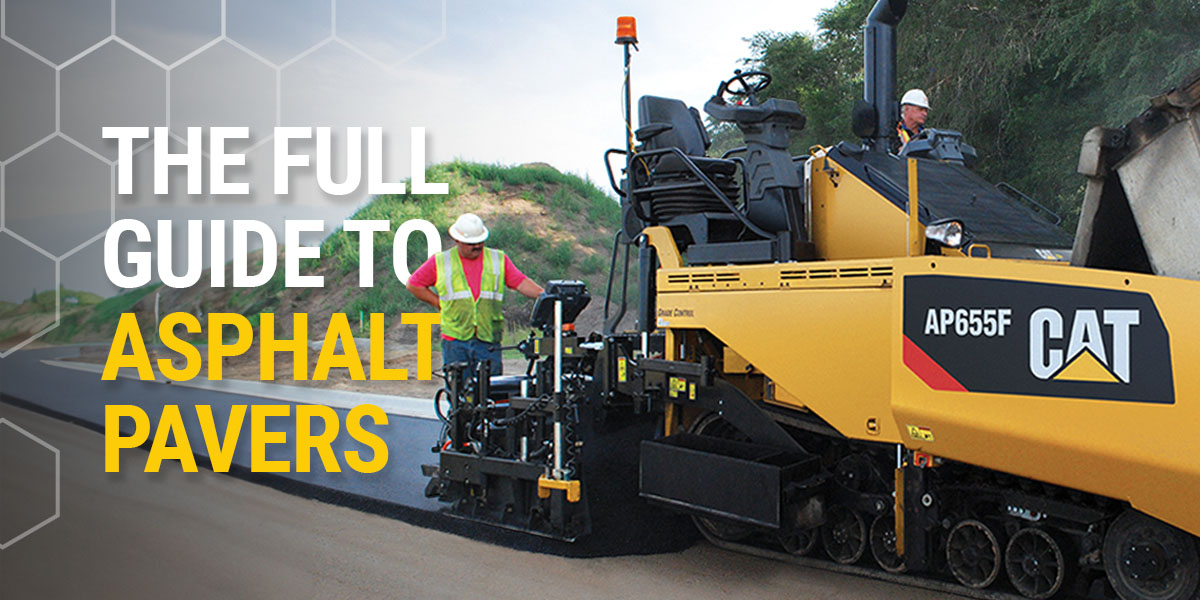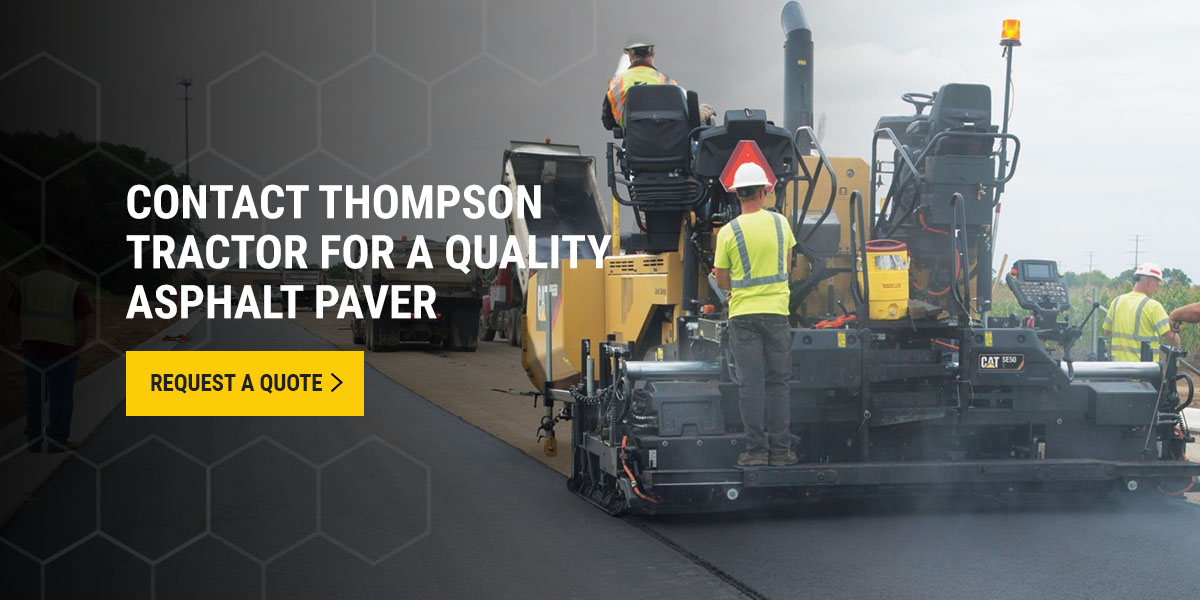An asphalt or road paver evenly distributes, compacts, and smooths asphalt. Understanding how a paver works, how to use a paver, and how to choose the right paver for a job can help you complete paving work efficiently.
What Is an Asphalt Paver?
An asphalt paving machine distributes and levels asphalt to transform rough terrain into smooth surfaces. It also uses a screed to compact the asphalt, reducing its volume.
In the past, large construction crews paved asphalt manually with shovels and picks. The development of the asphalt paver made road paving an easier and much faster process.
Asphalt Paver Types
Some asphalt pavers require a dump truck to tow them, but most models use tires or tracks to self-propel. Tracked and wheeled asphalt pavers contain two main components — the screed and the tractor. The screed shapes the asphalt while the tractor tows the screed. The ideal type of paver depends on ground coverage, work conditions, and the type of job you need to complete.
Consider the following asphalt paver types to choose the best option for your next job:
Tracked Paver
Tracked pavers are best for challenging work conditions and projects that require wide pulls. A tracked paver operates on rubber tracks, delivering optimal stability, maneuverability, and traction. Use a tracked paver if you plan to work with a full load or apply pavement to the following types of surfaces:
- Clay
- Sand
- Hillsides
- Steep grades
Wheeled Paver
A wheeled paver operates best on flat, even surfaces. It’s more efficient than a tracked paver because it can quickly cover long distances. Wheeled pavers are ideal for these project conditions:
- Covering a large ground area
- Performing substantial relocation
- Distributing and smoothing asphalt across long stretches
- Performing work on existing asphalt surfaces
- Overlaying, filling, and milling applications
How Thick of a Layer Can an Asphalt Paver Lay?
Asphalt pavers can lay asphalt in various thicknesses. Pavers can lay asphalt mix 1/2″ to 12″.
Manual vs. Automatic Screed Control
Manual grade manipulation occurs when a paver’s wheel path and elevation determine the asphalt’s smoothness. The screed arm’s “tow point” is where the arm attaches and how high its elevation is. When an operator performs manual grade operation, they use the tow point to affect the screed’s angle and mat thickness, controlling the asphalt’s grade. When performing manual grade manipulation, proper aggregate base placement is crucial.
Automatic screed control allows operators to control the tow point elevation using a control or reference separate from the tractor body. Outside controls or references are known as “automatic grade control” or “grade reference systems.” The most common modern automatic grade control systems are sonic string line or sensors, and mobile reference beams.
How Expensive Are Asphalt Pavers?
An asphalt paver’s cost depends on the brand, size, condition, and whether you choose to lease or pay upfront. New pavers can cost between $170,000 and $750,000, and used pavers can cost between $150,000 and $400,000. Purchasing a paver allows you to own a brand-new machine that you can use for the long term, and renting allows you to take advantage of new machines without making large investments.
Contact Thompson Tractor for a Quality Asphalt Paver
Asphalt pavers are incredibly valuable machines offering fantastic capabilities. Thompson Tractor offers high-quality asphalt pavers to help you accomplish the toughest paving jobs efficiently. Whether you purchase an asphalt paver or rent one, you can trust Thompson Tractor to provide reliable equipment. Contact us to request a quote and learn more.



